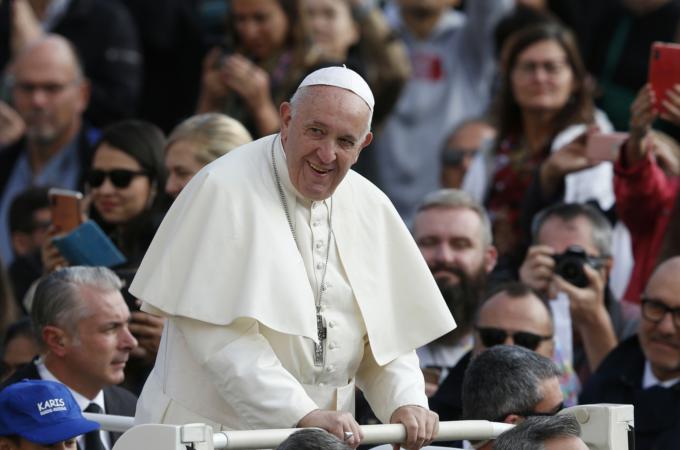Why doctrine matters
Catholicism has always been an intellectual religion. This is not to say that -- heaven forbid -- it's a religion only or especially for intellectuals but only that the Church has been intensely concerned from the start to hold, preserve, and share what it believes to be revealed truth about God and the meaning of life.
No doubt there have been times when this intellectuality has caused Catholicism to be -- or anyway seem to be -- too much a religion of the head and too little a religion of the heart. On the whole, however, insistence on clear thinking and careful formulations has served the Catholic Church well and helped make it attractive to many people.
I thought of these things when I heard that Pope Francis in his reorganization of the Roman Curia was assigning pride of place to evangelization rather than to doctrine. According to advance accounts, the plan calls for the merger of two existing evangelization dicasteries ("dicastery" is Vaticanese for "department") into a new super dicastery spearheading efforts in this area.
It hardly needs saying that the pope can reorganize the curia as he thinks best, just as popes before him have done. Moreover, there's a good case for placing evangelization at the top of the new organization chart.
What bothers me is the rationale offered by some Vatican insiders who claim the shift signals a downgrading not only of the Congregation for the Doctrine of the Faith but of doctrine itself. The controversy over changes in leadership and program of Rome's John Paul Institute for marriage and family studies in order to give it a more "pastoral" character seems to raise similar issues.
According to papal biographer Austen Ivereigh, writing in Commonweal, the curia plan involves "relegating" CDF. Relegating to what? Ivereigh doesn't say, but presumably he means the move places doctrine in a subordinate position. And why? Because, he says, citing a draft, the Church's "primary task" isn't teaching doctrine but "offering the kerygma, or the Good News of Jesus Christ's saving love."
This is confused. If I may expand a bit on Ivereigh's version, the Good News lies in the fact that in and through our Lord and Savior Jesus Christ, crucified and risen -- and only in and through him -- we are redeemed. That is the "Good News of Jesus Christ's saving love." And it is immeasurably rich in doctrinal content.
The importance of the doctrinal truth at the heart of the Christian message runs throughout the New Testament. For instance: the letter to the Ephesians urges Christians not to be like children "tossed back and forth and carried about with every wind of doctrine" (Eph. 4:13-15); the letter to the Hebrews tells readers, "Do not be led away by various and strange doctrines" (Heb 13:9). Texts could be multiplied, but the point is clear: orthodox doctrine matters.
In that Magna Carta of contemporary Catholic evangelization "Evangelii Nuntiandi," published in 1975, Pope St. Paul VI conceded that evangelization "does not consist only of the preaching and teaching of a doctrine." But he also insisted that "catechetical instruction" is a tool of evangelization that "must not be neglected."
"The intelligence...needs to learn through systematic religious instruction the fundamental teachings, the living content of the truth which God has wished to convey to us and which the Church has sought to express in an ever richer fashion during the course of her long history," he wrote.
As yet another reorganization of the Roman Curia approaches, there should be no downgrading of that.
- Russell Shaw is the author of more than twenty books. He is a consultor of the Pontifical Council for Social Communications and served as communications director for the U.S. Bishops.



















